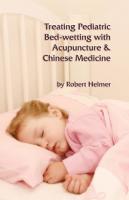Acupuncture & TCM Articles
Chinese Herbal Medicine for your Children
Author: Paul Courtney
Firstly it must be understood that Chinese herbal medicines for children have literally been developed, tried, tested and in most cases proved to be very affective. These medicines have been in use for over 5000 years.
Chinese herbal medicine for children takes on a holistic approach which does not only look at treating the symptoms but also looks at strengthening the bodies resistance and mental stability of the patient ensuring overall health.
Unfortunately one of the shortcomings of conventional medicines is that they often have detrimental side effects. For example, the overuse of antibiotics can make a child more susceptible to illnesses like ear infections. Another is that they treat your child (and you) like a machine and not like people. We are not suggesting that you should seek to replace your conventional pediatrician, you can certainly look into incorporating Chinese herbal medicines for your children for their care.
What Ailments Respond To Traditional Chinese Medicine
There are some ailments and long-term conditions that seem to respond very well to Chinese herbal medicines for your children. These include asthma, diabetes and juvenile arthritis. Chinese Traditional Medicine (TCM) has realized that children have different health needs than adults and have been developed over thousands of years. Chinese herbal medicines for your children are designed to have the child´s body retun to its natural balance.
TCM Powders
Chinese herbal medicines for your children are often given to you in powdered form. These powders can then be mixed in applesauce or a drink and administered twice a day, or whatever the TCM practitioner recommends. Unlike modern medicines where there is an expiry date, the powders themselves are usually odorless, have very little taste and can be stored over very long periods of time. They are also tailored to meet the individual health needs of your child.
Chinese herbal medicine powders for your children are made from dried extractions of natural botanical material (roots, stems, leaves and the like). These medicines are now made and packed in modern, sterile laboratories. The plant material is boiled until a sap like substance is made. This substance is then dried and ground up to make the powders. They are far more potent than the original material it came from.
TCM Also Requires Your Active Participation
Unlike conventional medicine, where you depend entirely on the doctor´s direction, you are part of your health solution in TCM. Pediatrics in TCM looks at treating children in four ways
– through proper diet,
– herbal medicines,
– Chinese massage (Tui Na) and
– acupuncture.
– Your child will also be expected to learn how to handle stress and to regularly exercise.
You will find that most children like the TCM sessions like Tui Na massage or acupuncture. The needles are incredibly thin now and insertion can barely be felt. Sometimes Chinese Herbal medicines for your children are burnt near the child during these sessions. Don´t be alarmed. These burning herbs will not be put on the child. They seem to activate the emotions and self-esteem of the child to help give their natural immune system a boost.
As you can see it is not just a question of taking a prescription to cure the ailment but rather a complete system to transform the body back to natural balance.
 Pediatric Bedwetting with Acupuncture and Chinese Medicine Pediatric Bedwetting with Acupuncture and Chinese Medicine
by Robert Helmer
This book is an excellent resource for Chinese Medicine practitioners interested in including pediatrics in their practice. It is built around numerous Chinese studies on the treatment of enuresis, enabling the reader to view and treat the problem from various perspectives. How to put all this knowledge into practice is demonstrated in quite a few well-structured case histories. An introductory section on the Western view on pathology and treatment of bedwetting offers the most up to date information in an easily readable format. This book takes integration of Western and Chinese medical approaches one step further.
Through the use of some of the recommended treatments offered in this compassionate and thoughtful book the practitioner will discover just how rapid and successful TCM can be in treating this difficult (for parents as well as the child) condition.
| 